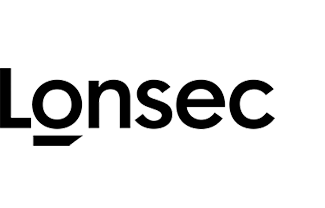This is a tough time for advisers and their clients. Many are still dealing with the fallout from the Australian bushfires and now we are in the midst of a global pandemic which has rocked markets and impacted the lives of everyone.
Stating the obvious, we’ve seen market volatility increase dramatically in recent weeks as the COVID-19 virus has spread across the world. The VIX index hovered around the mid teen percent mark-up until the middle of February to more than 82% in March as the market tries to price in the impact of the virus on the global economy and company earnings. Markets are well and truly in bear market territory (bear markets signify a fall of greater than 20%). Central banks and governments have taken material measure to buffer economies with rate cuts and drastic fiscal measures. The acceleration of quantitative easing programs has been designed to pump liquidity into markets, most notably into credit markets which we have seen liquidity dry up in recent weeks. Many advisers would have received updates from various fund managers advising them of increases in buy-sell spreads as a result of liquidity constraints in some markets.
General deleveraging by investors is clearly taking place. Investors are selling any liquid assets they can – including bonds – to fund redemptions, margin calls or simply to move into cash. Some of the fixed income managers included in our portfolios have been taking profit, trimming their positions after building in additional duration in the second half of last year. Parts of the market are blaming hedge fund sellers (always the first and easiest to blame) and some are blaming social distancing, which is making it more difficult for bond traders to execute their trades working from home.
At the same time, we’ve seen companies drawing down their entire credit lines at banks in efforts to shore up their balance sheets and make it through the next few weeks, months or quarters with little to no revenue coming in. Access to cash (or credit) is essential to keeping these businesses alive and through to the other side of this shutdown. Bills, interest payments and fixed costs still need to be paid. Companies are hoarding cash, and those that held government bonds as part of their liquidity reserves are selling them. The demand for liquidity has been great and cash – or ‘cashflow’ – is king in this environment.
From a portfolio perspective, Lonsec’s overall active asset allocation positioning has a defensive bias with a below target allocation to developed market equities, a positive tilt to emerging market equities, real assets and alternatives and a largely neutral allocation to fixed income assets. The rationale for this positioning was based on our view that most asset classes were expensive – or at best fair value – while cyclical indicators were negative but improving, and the low interest rate environment was expected to continue.
We are currently holding more regular investment committee meetings to review our asset allocation positions, meeting monthly, with additional meetings held as required depending on market movements. We don’t think it is the right time to exit equity markets given we have seen a material pull back already. Interestingly, the output from our proprietary DAA models has changed dramatically over the course of a month. Asset class valuations are looking increasingly attractive, while cyclical indicators are likely to turn negative as economic data filters through. Additionally, sentiment and factors such as market momentum has turned negative. We are currently focused on identifying at what point it will be appropriate to take an increased position into risk assets.
From a bottom-up perspective, we have been diversifying our exposures in our SMAs as well as our Listed, Multi-Asset and Retirement portfolios. We are in constant contact with our underlying fund managers to understand how portfolios are performing with particular focus on areas of potential stress.
Finally, the Lonsec team would like to thank our advisers who have supported our portfolios to-date. We will continue to keep you informed with the latest market and portfolio developments and are happy to discuss the portfolios with you in this period where your clients may be anxious. Importantly, we hope that everyone stays healthy.



